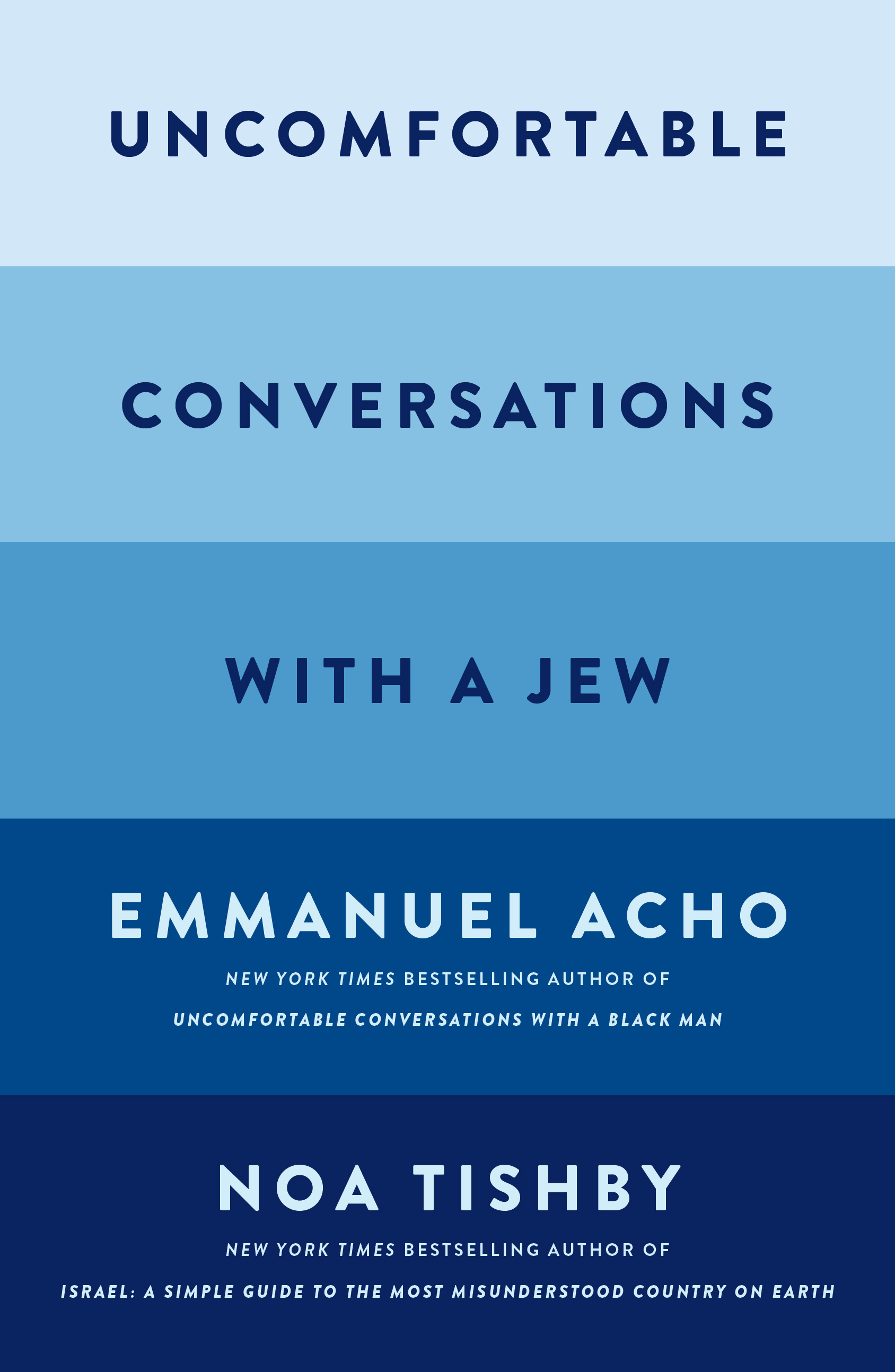
Uncomfortable Conversations with a Jew
Emmanuel Acho, Noa Tishby
Publisher
S&S/Simon Element
Publication Date
4/30/2024
ISBN
9781668057858
Pages
320
Categories
About the Author

Emmanuel Acho
Questions & Answers
The book delves into the complexities of Jewish identity by exploring its multifaceted nature as a religion, culture, and ethnicity. It emphasizes that being Jewish isn't monolithic, encompassing various denominations, levels of observance, and ethnic backgrounds. The author, Noa Tishby, highlights the diversity within the Jewish community, including those who are secular, observant, and culturally Jewish. The book also addresses the misconceptions surrounding Jewish identity, such as the notion of a Jewish "race" and the perception of Jewish whiteness, while acknowledging the internalized antisemitism that can affect Jewish individuals. By discussing these topics, the book promotes a more nuanced understanding of Jewish identity and the diverse experiences within the Jewish community.
Antisemitism has deeply shaped Jewish history and contemporary life. It has fueled discrimination, violence, and the Holocaust, leading to a persistent fear of persecution. The book challenges common stereotypes by exploring the diversity within Judaism, emphasizing that Jews are not a monolithic group. It debunks myths about Jewish wealth, power, and control, revealing the historical context behind these stereotypes. The book also highlights the resilience of the Jewish people, their contributions to society, and the importance of understanding individual experiences. By fostering dialogue and education, the book aims to combat antisemitism and promote empathy and understanding.
The book delves into the Israeli-Palestinian conflict and Zionism, emphasizing the complexities and underlying tensions. It highlights Zionism as the Jewish people's right to self-determination and a state in their ancestral land, tracing its historical roots back to biblical times. The book acknowledges the displacement of Palestinians during the creation of Israel but also argues that Zionism was a response to centuries of oppression and persecution faced by Jews.
The tensions arise from the differing perspectives on the conflict, with some seeing Zionism as oppressive and colonialist, while others view it as a necessary response to historical injustices. The book also addresses the role of external factors, such as the UN's double standards and the BDS movement, which it argues perpetuate antisemitism and demonize Israel. The complexities are further compounded by the diverse experiences within both Jewish and Palestinian communities, as well as the internalized antisemitism that can affect Jewish individuals and communities.
The book proposes several strategies for combating antisemitism and fostering understanding:
- Education and Dialogue: Encourage open conversations about antisemitism and Jewish experiences to foster understanding and empathy.
- Reclaiming Language: Noa Tishby advocates for reclaiming slurs like "Jew" to empower Jewish identity and combat dehumanization.
- Understanding Jewish Identity: Explain that Judaism is an ethno-religion, encompassing shared history, culture, and ancestral homeland, not just religious observance.
- Challenging Stereotypes: Address and dismantle stereotypes, such as the "Jewish control" myth, by providing historical context and factual information.
- Promoting Allyship: Encourage individuals to be allies by checking on Jewish friends, speaking out against antisemitism, and supporting Jewish communities.
- Highlighting the Holocaust: Acknowledge the Holocaust's impact and its relevance to understanding contemporary antisemitism.
- Addressing Zionism: Discuss Zionism as the Jewish people's right to self-determination, while acknowledging and addressing criticisms of Israeli policies.
- Building Relationships: Emphasize the importance of intercommunity relationships and events like "Soul Food Shabbat" to build bridges and understanding.
The book encourages readers to reflect on their biases and assumptions by presenting a candid conversation between a Black man and a Jewish woman about antisemitism and its manifestations. It challenges readers to confront their own unconscious biases, particularly those related to Jewish stereotypes and the Jewish state, by providing historical context and personal narratives. The authors emphasize the importance of understanding individual experiences and the impact of generalizations.
Personal responsibility plays a crucial role in combating antisemitism and promoting social justice. The book argues that recognizing and addressing one's biases is essential for fostering empathy and taking action against hate. It encourages readers to be allies, not just by supporting Jewish individuals or the Jewish state, but by actively challenging antisemitic attitudes and behaviors in their own communities and beyond. The authors advocate for a collective effort to combat all forms of oppression, emphasizing that unity among marginalized groups can lead to significant change.